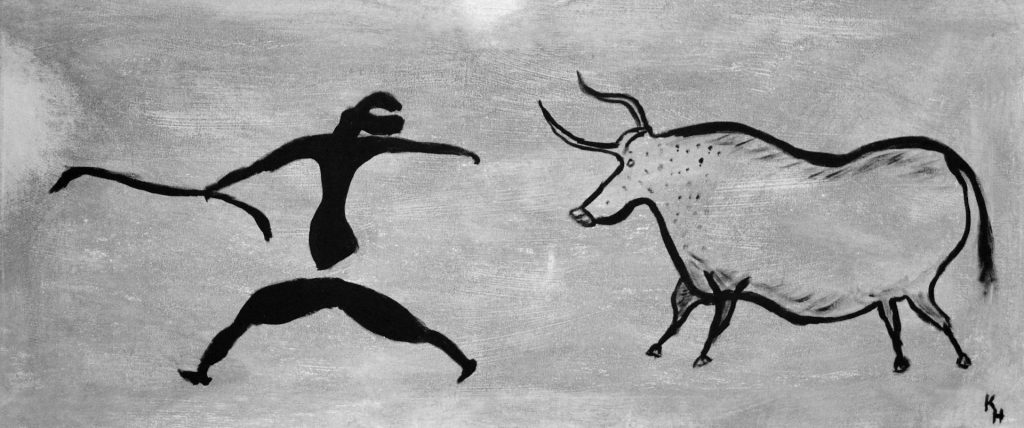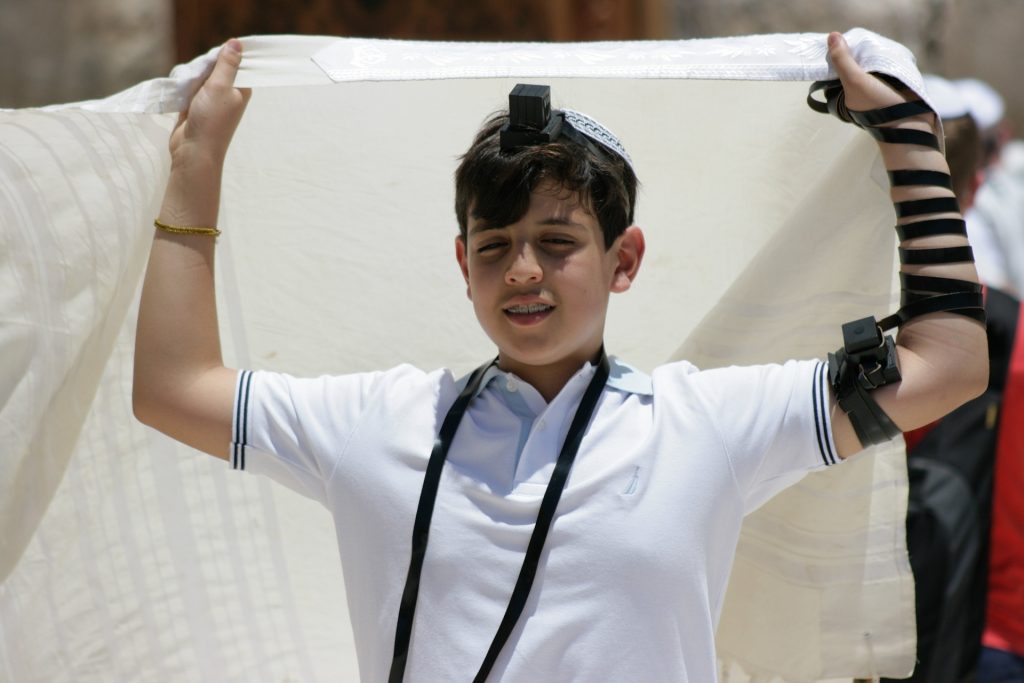
(5-6 Minute Read)
Exodus 21:1 – 24:18
Misphatim records the rules that the Most High gave to Moses to present to the Israelites.
“When a Hebrew slave is acquired, he shall serve six years and be released in the seventh year. If the slave decides to remain with his master, then the master shall pierce his ear with an awl to the doorpost. He shall belong to his master for life.
A female Hebrew slave must be redeemed; she shall not be sold to outsiders if the master becomes displeased with her. If the master designated her for his son, he shall treat her as a free maiden; he must not withhold from the original woman her food, clothing, or conjugal rights. If he fails her in these three ways, she shall be released without any required payment.
When a man schemes against another to take his life, he shall be taken from the very altar to be put to death.
He who strikes his father or mother shall be executed.
A kidnapper shall be put to death.
When two men fight and one strikes the other, and he does not die but takes to his bed to recover, the assailant shall not be punished except to pay for the victim’s idleness and cure.
When a man strikes his male or female slave and he or she dies, the victim must be avenged. But if the slave recovers he is not to be avenged.
When men fight, and a pregnant woman is pushed and she miscarries, the pusher shall be fined. If there is other damage, the penalty shall be life for life, eye for eye, and tooth for tooth.
When a man strikes his male or female slave and destroys his or her eye or tooth, the slave shall be released accordingly.
When an ox gores a person, the ox shall be stoned and the meat shall not be eaten; the owner shall not be punished unless he was aware that the ox had a tendency to attack and was negligent. Then the owner shall be executed or pay as is required.
When a man digs a pit and does not cover it, and a livestock animal falls in, the digger shall make restitution. But he may keep the dead animal.
When an ox gores another ox, the two owners shall sell the live animal and divide the price as well as the dead animal. If the goring ox owner was negligent, then he must make restitution.

When a man steals livestock and slaughters it or sells it, he shall pay five oxen for a stolen ox or four sheep for a stolen sheep.
When a thief is killed while tunneling [i.e. breaking in], there is no guilt for shedding his blood, unless the sun is risen upon him [i.e. it’s visibly apparent that he is not a threat]. The thief must make restitution, paying double. If he is unable, then he is to be sold [into slavery] to pay the debt.
When livestock or a fire damages another’s land or crops, restitution shall be made.
When a man gives valuables to another for safekeeping and they are stolen, if the thief is not caught, then the keeper shall depose before the Almighty that he himself is innocent. In all cases where two parties lay claim to the same property, they shall come before the Most High to declare who is guilty of misappropriation, and he shall pay double.
If a man seduces a virgin without paying the bride price, he must marry her unless her father refuses. Either way he must pay the bride price.
You shall not tolerate a sorceress.
Whoever sacrifices to another ‘god’ other than the Almighty shall be condemned.
You shall not oppress a foreigner, since the Israelites were foreigners in Egypt.
You shall not mistreat a widow or an orphan, lest the Eternal One hear their cry and become vengeful.
If money is lent to the poor, the lender should not act as a creditor or take interest. If the poor man offers his garment as a pledge, it shall be returned to him by evening so he can sleep in it.
You shall not curse the Most High or a chieftain among the people of Israel.
You shall give Me the first-born among your sons and livestock.
You shall be holy people unto Me; do not eat meat from animals killed by other animals.
You must not distribute false rumors or testify maliciously on behalf of the guilty. You shall not side with the multitude to do wrong. You shall not show deference to the mighty or to the poor in a dispute.
When you encounter your enemy’s livestock wandering lost or struggling under its burden, you must assist it.
Keep far from a false charge; do not bring death on the innocent. Reject bribery.
Sow and harvest your fields and groves for six years. In the seventh year let it lie fallow and let the needy eat of it.
Work for six days and rest on the seventh, that you, your livestock, your workers, and the foreigners may all rest.
Make no mention even of the names of false ‘gods.’
You shall observe the Feast of Unleavened Bread for seven days in the month of Abib (i.e. spring season). On the Feast of the Harvest and the Feast of the Ingathering you shall bring Me of what you have sown and gathered. Three times a year your males shall appear before the Most High.
You shall not boil a [livestock] kid in its mother’s milk.
I am sending an angel before you to prepare the way. Do not defy him, since My name is in him. When My angel goes before you and brings you to the Canaanites, you shall destroy their idols and altars. You shall not bow down and worship their false ‘gods.’ You shall serve the Almighty and He will bless you.
I will send forth My terror before you, and your enemies will flee from before you. I will drive out the Canaanites over time lest the wild animals multiply to your detriment. I will set your borders from the Sea of Reeds to the Sea of Philistia [the Mediterranean Sea] and from the wilderness to the Euphrates [River]. You shall make no covenant with the Canaanites or their ‘gods.’ They shall not remain in the land, lest they cause you to worship their ‘gods.’”
Then the Eternal One told Moses to come up to Him, along with Aaron, Nadab, Abihu, and seventy elders of Israel; Moses alone would then draw closer.
Moses repeated all the commands and rules of the Almighty. All the people answered with one voice, “All that the Most High has commanded we will do.” Moses wrote down all of the commands of the Eternal One.
Early in the morning Moses set up an altar with twelve pillars representing the twelve tribes at the foot of Mount Sinai. Moses designated some young men, and they offered sacrifices. Moses collected some of the blood and dashed the rest on the altar. Then he read the record of the covenant aloud to the people. They replied, “We will do and we will hear.” Moses sprinkled the blood on the people, saying that this was the blood of the covenant relating to these commandments.
Moses, Aaron, Nadab, Abihu, and the seventy elders ascended towards the mountain. Eating and drinking, they beheld the Most High, but they did not die. Under His “feet” was the appearance of sapphires like the sky for purity.
The Almighty told Moses to come up higher on Mount Sinai, and He would give him the stone tablets with the commandments which He had inscribed. Moses and his attendant, Joshua, arose. Moses told the elders to wait for them to return, then Moses went up the mountain.
When Moses had ascended the mountain further, the Presence of the Most High abode on Mount Sinai in a cloud that appeared to the Israelites as a consuming fire for six days. On the seventh day, the Almighty called to Moses from the cloud. Moses went into the cloud, and he remained on the mountain for forty days and forty nights.

In a sense, the presentation of the mitzvot, or commandments, of the Torah is done in three parts. The first part, the Aseret HaDibrut, or Ten Commandments, could be described the “highlighted bullet points” of the essence of the Torah. In Misphatim, a succinct summary of much of the rest of the Torah is provided. After that, the Almighty proceeded to dictate the entire Torah content to Moses for permanent documentation.
Accordingly, after hearing the Aseret HaDibrut, the people of Israel responded, “All that the Almighty has spoken we will do.” But after the commandments contained in the Torah parashah of Misphatim, the community of Israelites declared, “All that the Almighty has spoken we will do and we will hear.” Our chachamim, rabbinical sages of blessed memory, have expounded on these passages at length. Additionally, in a simpler sense, some have suggested that the phrase “we will hear” noted that the Jewish people first committed to observing the Ten Commandments. Then, after hearing the mitzvot of Misphatim, the people realized that more commandments and Torah content would be dictated by the Most High. In that context, they now said, “We will do and we will hear.”
One thought that the chachamim have noted about the phrase “We will do and we will hear” is that the “doing” comes first, and the “hearing” comes after. In other words, the Jewish people committed to observance of the Torah mitzvot unconditionally; they pledged to keep the commandments merely because they knew that they came from the Eternal One. If they had said, “We will hear and we will do,” the implication might have been that they would have heard what the Almighty said, assessed and analyzed the commandments, and only then they would observe the Torah if they so decided. In contrast, the Jewish people declared that they would commit to keeping the Torah, and accept whatever the Most High instructed next.
The chachamim have also noted that the Halacha of how tefillin is utilized is indicative of this concept. When praying with tefillin, the first tefillin is wrapped around the arm and hand first, and then the second tefillin is placed on the head. The idea is that the action — represented by the arm and hand — comes first; after that, the hearing and thinking symbolized by the head comes next.

Within the entire Torah there are 248 “positive commandments” (i.e. “Thou shalt’s), and 365 “negative commandments” (i.e. “Thou shalt not’s”). Our chachamim provide a metaphor that the 248 positive commandments relate to the bones of the body, and the 365 negative commandments correspond to the ligaments; the observance of the Torah contributes to the health of these bones and ligaments. The specifics of this metaphor are widely debated, largely because the actual count of bones and ligaments in the body differ from these numbers, and because the “health” that comes from Torah observance is primarily related to the soul and spiritual components rather than the body and physical parts. Regardless, the concept is that all 613 mitzvot of the Torah, both positive and negative, must be observed in order to achieve proper spiritual health and vitality.
This idea brings us to an interesting dilemma. How is it possible that all 613 commandments must be observed to reach optimal spiritual levels when it is simply impossible for a single person to perform every single mitzvah of the Torah? Some commandments are only for men; some are only for women; some are only for kohenim, or Levitical priests; some are only for first-born sons; etc. Similarly, providing a get, or bill of divorce, to one’s wife if he intends to divorce her is one of the 248 positive commandments. But obviously the notion that a man needs to divorce his wife that he is happily married to solely to perform an additional mitzvah is absurd. And in the days without the Mishkan or Beit HaMikdash, Tabernacle or Temple, the korbanot, sacrifices, cannot be offered. How is it fair for the Almighty to require us to keep a complete system of 613 commandments when it is literally impossible for any single person to do so, especially in the present era?
There are two solutions presented by our chachamim. The first and simpler answer relates to the value of Torah learning. Carefully studying the mitzvot themselves serves as a functional substitute for the actual performance of a commandment if it is not possible or relevant to observe it. For instance, a happily married man can fulfill the commandment of giving his wife a get by carefully studying and understanding the mitzvah and affiliated Halacha rather than actually divorcing his wife unnecessarily. The same concept especially applies to the korbanot, or Temple sacrifices. Without the Beit HaMikdash, the “next best thing” is to study the laws of the sacrificial offerings. To be clear, the substitution of Torah study for the actual performance of a commandment only applies if it is not possible or relevant to observe the mitzvah (such as in our previous two examples). As should be obvious, this method does not enable an individual to study the Torah rules about kosher food, attain credit for the observance of the related mitzvot, and then ignore the Torah and eat a ham sandwich.
There is another solution presented by the chachamim to solve this quandary. Although we cannot observe all 613 commandments as an individual, we can, however, observe them together as a unified community. While a Jewish man cannot peform the mitzvot of tarat mishpacha, or family purity, and a Jewish woman cannot perform the commandments affiliated with the Levitical priests, together the Jewish man, woman, Levitical priest, etc., can all observe the entire Torah as a single entity and community. And to illustrate the effectiveness of this unity, the chachamim return to the metaphor that the Torah mitzvot relate to the bones and ligaments of the body. Just as bones support the body and ligaments hold them all together, the various mitzvot enable the Jewish people to function together as an entire community and “body,” achieving the highest spiritual levels of full Torah observance. Another analogy would be the Halachic principle of being “yotzei” on a mitzvah. For instance, when the head of a household makes kiddush for Shabbat, the rest of the family and even guests are permitted to merely observe and respond “Omaine!” and still receive “credit” as though they had performed the kiddush ceremony themselves. By being part of a functioning Jewish community defined by ahavat Yisrael, love for our fellow Jews, and resounding unity, we can reach higher levels by being “yotzei” on the mitzvot of others.
Correspondingly, this idea also explains why sinat chinam, or baseless hatred, is so utterly destructive. Without the ahavat Yisrael, love for our fellow Jews, to unify us and enable us to share in each other’s mitzvot, we are deprived of the ability to reach our highest levels of spirituality as a community. If we are full of hatred for one another, the “bones and ligaments” that would otherwise connect us are broken and damaged. In that case, it becomes impossible to achieve the proper level of spirituality. Accordingly, our chachamim tell us that the second Beit HaMikdash was destroyed due to resounding sinat chinam, baseless hatred, that permeated the Jewish people. And sadly, after two thousand years, it seems that we still are unable to fully reject sinat chinam and embrace ahavat Yisrael. Thus, the Beit HaMikdash is still in a state of destruction. In a sense, the lack of the Beit HaMikdash represents and even parallels the notion that until we shun all forms of hatred for one another, we will never be able to observe the 613 commandments of the Torah properly. Just like we can’t perform all of the mitzvot without the Beit HaMikdash, so, too, we cannot keep all 613 commandments without unifying love among the Jewish people.
May the Holy One, Blessed be He, ever enable us to perform as many mitzvot as possible while we proceed to “hear” more of what He requires from us. And may we always strive to connect with one another in a state of love and unity, understanding the destructive nature of sinat chinam and rejecting it accordingly.


